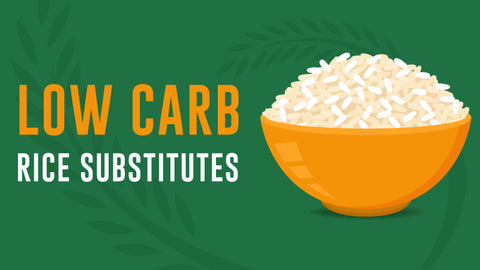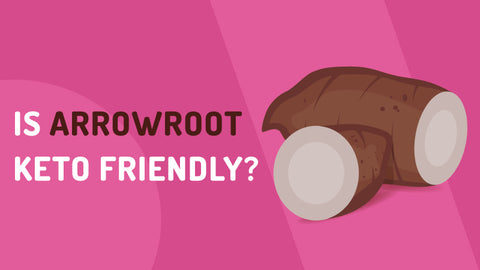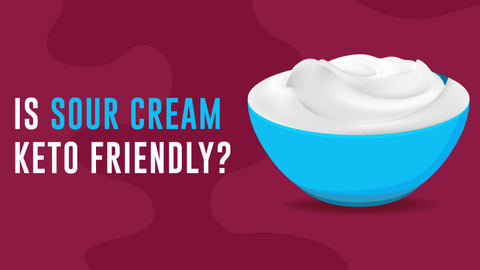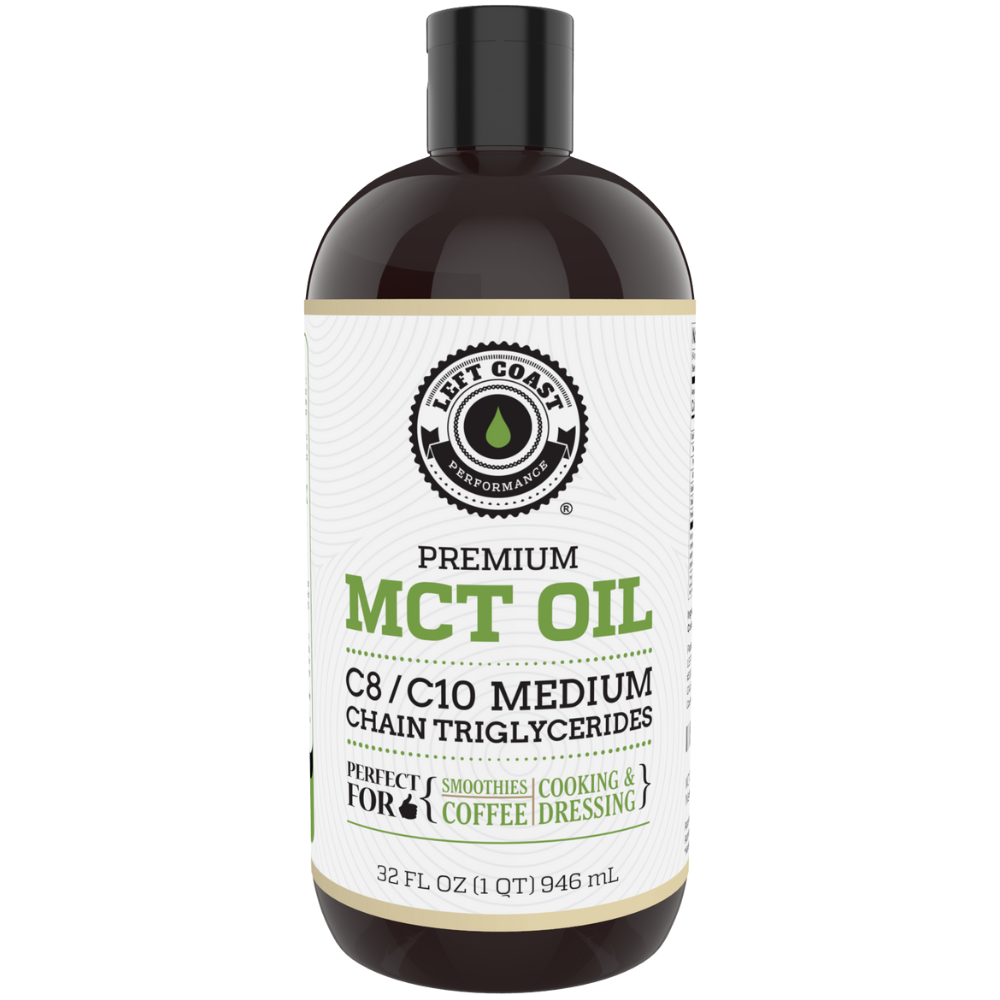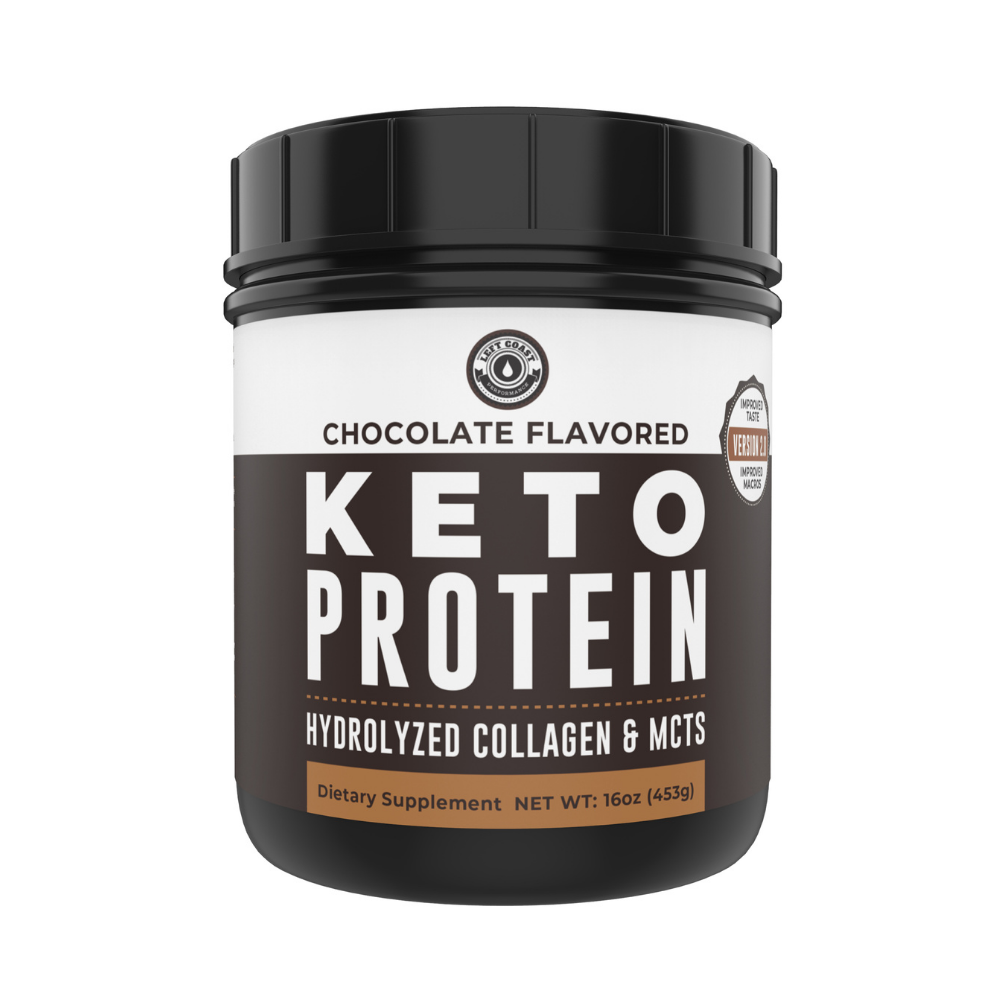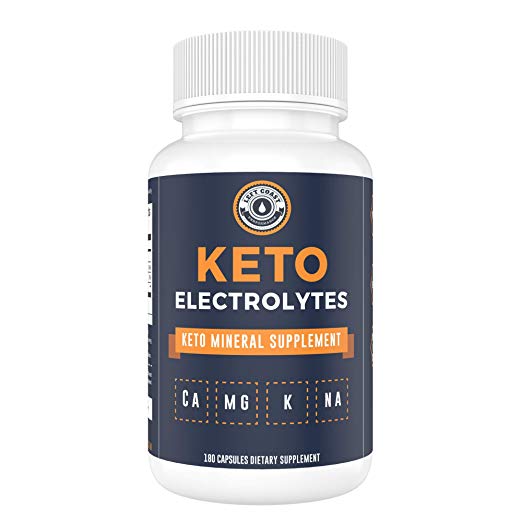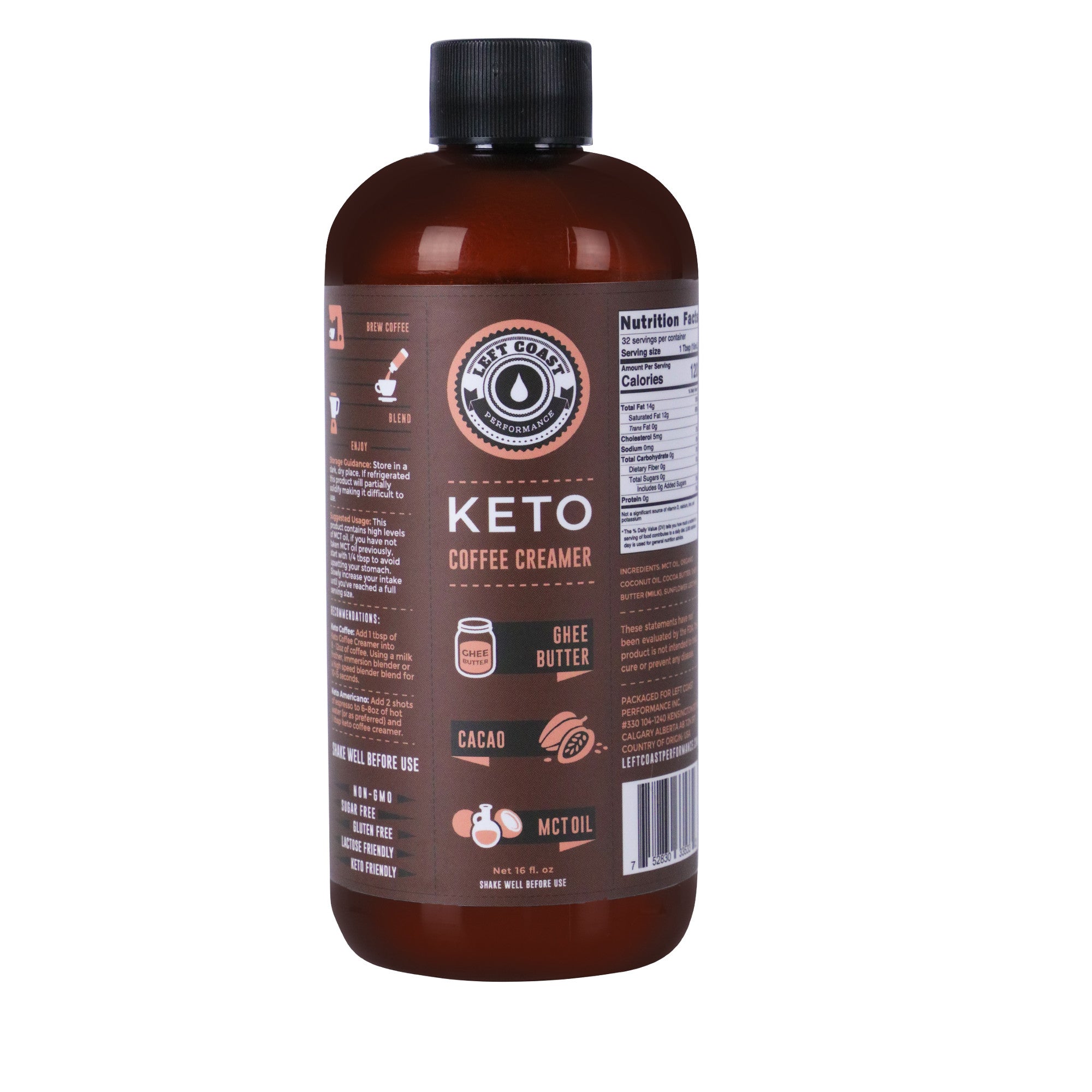Is Maltodextrin Keto and Does It Have Carbs? Here’s Why You Should Avoid It on a Keto Diet
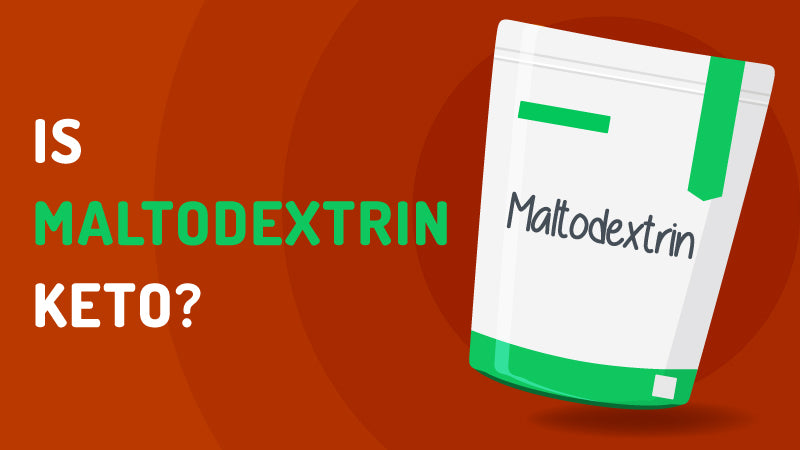
on December 10, 2019
Giving up sugar can often be the hardest part of starting a keto diet, but it doesn’t have to be. Thanks to a few sugar substitutes, it’s still possible to indulge your sweet tooth without falling out of ketosis.
Table sugar, fruits, and even natural sweeteners like honey and maple syrup are definite no-nos. Still, there are a handful of low-carb, low-calorie sweeteners that are totally acceptable on a keto diet — the tough part is figuring out which ones.
Several types of so-called “healthy” sweeteners are available on the market, but not all are created equal. Each sweetener behaves slightly differently in the body. For instance, a product that claims to be “sugar-free” or contains “no added sugar” is not necessarily keto-friendly.
Sugar alternatives, like maltodextrin, can actually kick you out of ketosis, hinder weight loss, and may cause imbalances in your gut microbiome.
In this article, we discuss maltodextrin, a sweetener often hidden in many products. Learn what it is, where to find it, and why you want to avoid it while on a low-carb diet.
What Is Maltodextrin?
Maltodextrin is a fine white powder that is often used as a thickener, filler, or preservative.
It’s made from starchy foods like corn, wheat, potatoes, rice, or tapioca — but it’s far from natural.
Maltodextrin is a cheap additive typically manufactured from genetically modified (GMO) corn. GMOs are considered safe by the FDA, but if you want to avoid them, be sure to choose products labeled organic (these are always GMO-free).
Making maltodextrin requires a highly intensive process called partial hydrolysis, which uses water, enzymes, and acids to break down the starches into a water-soluble powder. It’s similar to how corn syrup is made, but the final product of maltodextrin has a low sugar content.
Maltodextrin is a polysaccharide, a type of carbohydrate that combines multiple sugar molecules. It’s technically considered a sweetener but offers very little taste and only 0% - 5% the sweetness of sucrose.
Instead, maltodextrin is typically combined with artificial sweeteners to increase the thickness, volume, texture, and shelf life of various packaged food products. It’s also added to personal care items like lotion and hair products and used as a filler in pharmaceuticals as well.
Maltodextrin is a common ingredient in many processed foods, such as:
- Salad dressings
- Sauces
- Canned soups
- Canned fruits
- Frozen meals
- Yogurts
- Sugar-free Jell-O
- Instant puddings
- Beef jerky
- Protein powders and supplements
- Nutrition bars
- Meal replacement shakes
- Energy and sports drinks
- Cereals
- Pasta
- Rice
- Baked goods
- Splenda
Some athletes and bodybuilders use maltodextrin to provide them with a quick, easily digestible boost of calories. The goal is to raise insulin levels to push carbohydrates into the muscle cells and replenish energy stores. This is why it’s often included in sports drinks and snacks.
However, that doesn’t mean it’s a good ingredient for keto dieters. Before adding anything to your cart, read the food labels to make sure its maltodextrin-free.
Is Maltodextrin Keto?
Maltodextrin may be an alternative to sugar, but it doesn’t make it any healthier of an ingredient.
It not only contains empty calories and carbs, but it also has a high glycemic index that can wreak havoc on your blood sugar and insulin levels. This makes it far from a keto-friendly option.
Maltodextrin Contains Carbs and Calories
Maltodextrin contains 4 calories per gram, which equals the number of calories in sucrose (table sugar). A teaspoon has about 16 calories and 3.8 grams of carbohydrates. Any maltodextrin consumed should be added to your total carbohydrate count.
Here’s a table to compare 1 tsp of maltodextrin to 1 tsp of regular table sugar.
|
Maltodextrin (1 tsp) |
Table Sugar (1 tsp) |
|
16 calories |
16 calories |
|
3.8 grams of carbohydrates |
4.2 grams of carbohydrates |
|
Glycemic Index: >100 |
Glycemic Index: 65 |
Aside from the calories and carbs, maltodextrin has no nutritional value and appears to offer no health benefits. If anything, consuming large amounts of it can be detrimental to any diet. This is primarily due to the way it behaves in the body when consumed.
Maltodextrin Causes Extreme Spikes in Insulin
Maltodextrin is quickly digested in the body, so it will offer a rapid dose of energy. However, this also means it raises your blood glucose, causing a dramatic spike in insulin levels.
Maltodextrin has an extremely high glycemic index (GI) that can reach well past 100. To compare, table sugar has a GI of 65.
The glycemic index measures the rate at which foods raise blood sugar levels. The lower the GI, the slower glucose is released and absorbed in the body. Low GI foods are often more filling and satisfying, whereas high GI foods cause drastic increases in blood sugar and insulin levels, which will inevitably kick you out of ketosis.
Maltodextrin Side Effects
Maltodextrin has been deemed safe by the U.S. Food and Drug Administration (FDA) and is included in the total carbohydrate count of any product’s nutritional value. Still, maltodextrin comes with some potential side effects.
Large doses of this sweetener could cause mild gastrointestinal symptoms such as gurgling sounds, gas, bloating, and diarrhea, though most of these symptoms are transient. However, consuming maltodextrin regularly, even in small amounts, may have damaging effects on your blood sugar, gut bacteria, and immune responses.
Blood Sugar & Insulin Spikes
As mentioned above, maltodextrin is a quick, easily digestible carbohydrate with a high glycemic index. While it may come in handy for anyone in need of a fast energy boost (like a marathon runner or those with chronic hypoglycemia), it doesn’t offer any long-term benefits.
In the short-term, quick blood sugar spikes may cause side effects, including:
- Headache
- Fatigue
- Increased thirst
- Trouble concentrating
- Frequent urination
Over time, constant high levels of blood sugar and insulin can contribute to weight gain, insulin resistance, and type 2 diabetes.
Following a keto diet will naturally lower blood sugar, improve insulin sensitivity, and reduce symptoms of type 2 diabetes. To experience these benefits, it’s best to avoid maltodextrin.
Affects the Balance of Your Gut Bacteria
Your gut microbiome contains trillions of microbes, including over 1,000 species of bacteria. Most of these are crucial for your health, but some may play a role in various diseases.
Imbalances in your gut bacteria have been linked to a host of chronic issues, including obesity, inflammatory bowel diseases, type 2 diabetes, and cancer. The gut microbiota also impacts your metabolism and how your body absorbs and uses nutrients. It’s even connected to your mental health, via the gut-brain axis, and could be the root of some symptoms of anxiety and depression.
What you eat will largely influence this microbiome balance. Research has shown that maltodextrin may be an enemy to your good gut bacteria. It affects the growth of probiotics, which can weaken your immune system and make you more susceptible to disease.
Increases Risk of Autoimmune and Chronic Inflammatory Diseases
Maltodextrin’s effect on gut microbiota is especially harmful when it comes to inflammation.
It impairs the way cells respond to bacteria and suppresses the anti-microbial defense mechanisms that our body uses to keep a healthy microbiome balance.
A study on mice discovered that maltodextrin promotes the survival of salmonella, which is linked to chronic inflammatory disease. Another study found that maltodextrin enhances the growth of E. coli, a significant player in Crohn’s disease.
The researchers concluded that those who eat a lot of processed foods containing maltodextrin may be at higher risk of developing diseases such as inflammatory bowel disease (IBD), diabetes, and atherosclerosis.
In other words, avoiding maltodextrin is important for not only maintaining ketosis but for reducing the risk of inflammation and a wide range of diseases affecting everything from the gut to the brain.
Keto-Friendly, Low-Carb Sweeteners
Maltodextrin is not a recommended ingredient for the keto diet. It has a high glycemic index and no nutritional value. It’s not even a proper sweetener since it offers practically no sweet taste.
Instead, you want to seek out sugar alternatives that are low in calories and carbs and don’t cause any blood sugar spikes. These sweeteners will help you stay in ketosis while enjoying a little something sweet.
Erythritol
Erythritol is our most recommended keto-friendly sweetener. It’s a sugar alcohol that comes in powdered or granulated form. It has virtually no calories (only 0.24 calories per gram) and no net carbs.
The carbs it does have (4 grams of carbs per teaspoon) can be treated similar to fiber. They pass through the body undigested, so they don’t need to be counted in your total daily carbohydrate count.
Best of all, erythritol has a glycemic index of zero. It has no impact on your blood sugar or insulin levels and can be consumed with minimal to no side effects.
Erythritol has a sweetness level of 60 - 80% of sucrose and can be substituted for powdered, white, and brown sugar in most recipes. Just note that it may leave your baked goods dry or with a gritty or crunchy texture. It also has a “cooling” effect on the tongue that may be less satisfying than regular sugar.
Swerve is a recommended brand of erythritol sweetener. It's made with erythritol, oligosaccharides, and other natural flavors. It's ideal for most baking because it doesn't have the "cooling" aftertaste, making it suitable for keto recipes that require a bit of sweetness.
Stevia
Stevia is a natural sweetener from the leaves of the Stevia rebaudiana plant and is up to 300 times sweeter than regular sugar. This may seem a hazardous level, but it’s not metabolized in the body like sugar.
Stevia has a glycemic index of zero, has no effect on blood sugar or insulin levels, and contains no calories, making it a good sugar substitute for the keto diet.
You can find stevia in liquid, powdered, and granulated forms and add it to any keto beverage or dessert. We don't recommend adding liquid stevia to baking recipes, but it's better suited for coffee and tea.
Just remember to take into account stevia's high sweetness level. You only need 1 teaspoon of powdered stevia for every cup of sugar when baking.
When purchasing, look for a high-quality stevia product without any added sugars, fillers, or artificial flavors. Many brands may contain other ingredients, like the popular Stevia In The Raw, which includes maltodextrin.
Look for high-purity stevia extract with at least 95% glycosides — these are the compounds that give stevia its sweetness and offer some health benefits like antioxidant and antidiabetic properties, too.
Luo Han Guo, a.k.a. Monk Fruit Sweetener
Luo Han Guo, better known as monk fruit, is a small, sweet fruit native to southern China. It’s long been used in traditional Chinese medicine, and it gets its sweetness from antioxidants called mogrosides.
When monk fruit sweetener is made, these mogrosides are separated from the juice, which contains fructose and glucose. This leaves the sweetener with zero calories and carbs and a glycemic index of zero, meaning it has no effect on blood sugar levels. Like stevia, it's quite sweet — as much as 250 times as sweet as table sugar.
Monk fruit sweetener is available in liquid, powdered, and granulated forms and can be used just like erythritol and stevia in baked goods, beverages, sauces, and more. Some monk fruit extracts may contain other sweeteners like maltodextrin, so you’ll want to check the full ingredient list to make sure you’re getting pure form without any extra additives.
Sweetener Blends
Some sweetener blends such as Truvia and Whole Earth Sweetener contain a combination of the above sugar substitutes, offering a more balanced taste, texture, and sweetness that’s closer to sugar. These types of blends can be great keto-friendly options as long as they contain no other additional ingredients like maltodextrin.
The Verdict: Avoid Maltodextrin
Maltodextrin is an ingredient that often shows up in many processed foods, some of which claim to be “healthy,” like nutrition bars, energy drinks, salad dressings, or “sugar-free” treats. It even appears in many sugar substitutes touted as being keto-friendly.
Whether you're on the keto diet or not, it's best to avoid maltodextrin all together.
Maltodextrin offers nothing but empty calories and carbohydrates — it doesn’t even have much of a taste. Instead, it’s used as a cheap additive to add bulk, texture, and increase shelf life to a product. On top of this, maltodextrin has a list of nasty side effects, even in small doses.
Maltodextrin has an extremely high glycemic index and causes major spikes in blood sugar and insulin levels when consumed. This can severely hamper weight loss and swiftly kick you out of ketosis.
To stay in ketosis, avoid maltodextrin. This is easy to do as long as you steer clear of processed foods. When it comes to your sweet tooth, you don’t need to ditch sweets entirely.
Satisfy your sugar cravings without compromising your ketogenic diet, with zero-carb, zero-calorie sugar alternatives like erythritol, stevia, and monk fruit sweetener, all of which have no impact on your blood sugar.
Still, keep your intake low — you don’t always want to depend on something sweet, even if it is keto-friendly. And be sure to check the ingredient list on these products, since many brands will sneak maltodextrin into the mix.


